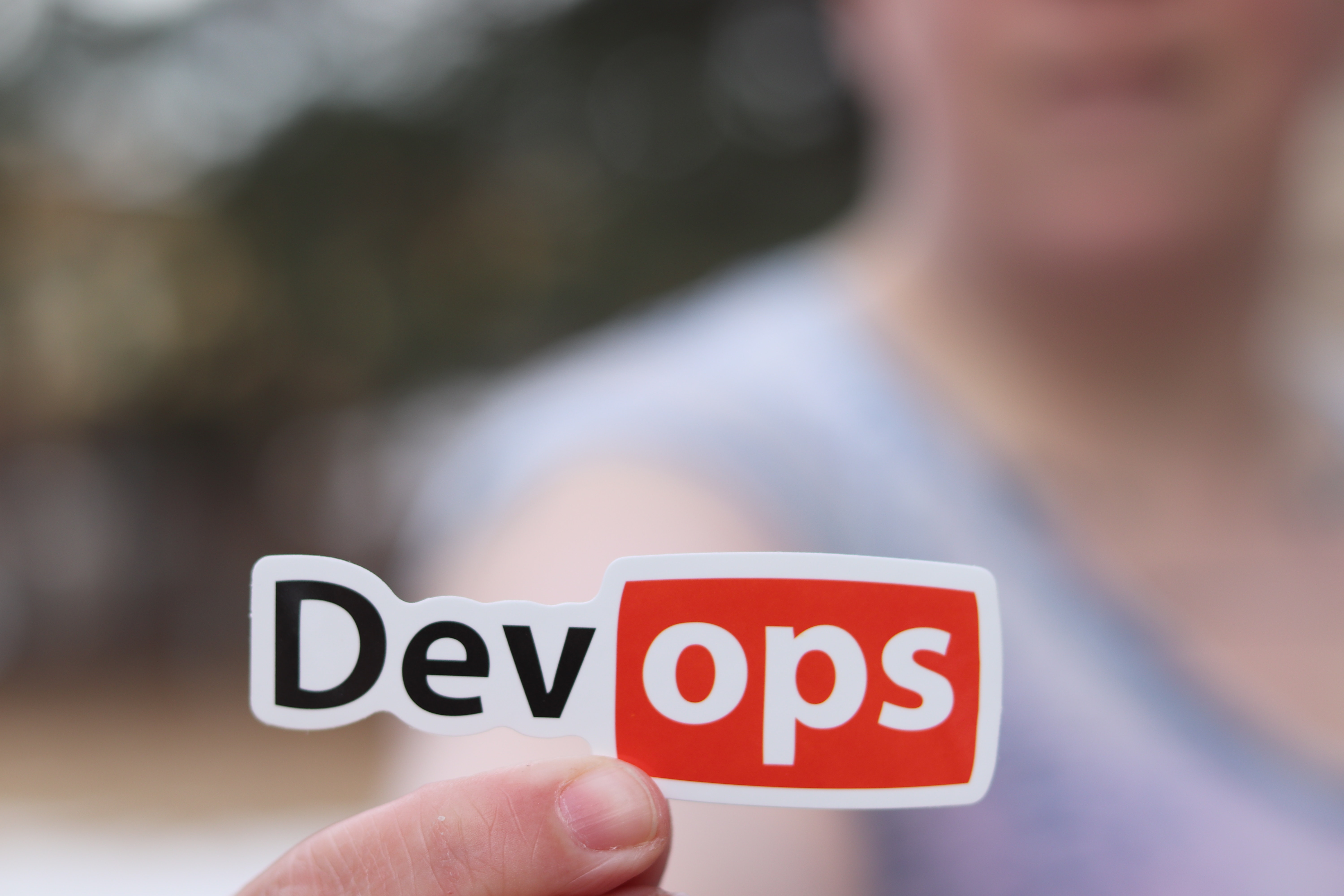Top Trends for Entry-Level Software Developers
 Miguel Lopez
Miguel LopezTable of contents
- As a new software developer, it can be challenging to keep up with the latest trends and determine which skills to prioritize. In this post, we'll explore some of the top trends for entry-level software developers and offer tips to help you stay ahead.
- Full-stack development
- Mobile app development
- Cloud computing
- Artificial intelligence and machine learning
- Agile methodology
- Cybersecurity
- DevOps

As a new software developer, it can be challenging to keep up with the latest trends and determine which skills to prioritize. In this post, we'll explore some of the top trends for entry-level software developers and offer tips to help you stay ahead.
Full-stack development
As I mentioned earlier, entry-level software developers are expected to have a basic understanding of both front-end and back-end development. This means that you should be comfortable with HTML, CSS, and JavaScript for front-end development, as well as server-side languages such as Java, Python, and Ruby for back-end development. It's essential to have a solid understanding of the full-stack development process and be able to build a complete application from scratch. Knowing how to work with databases and APIs is also essential for full-stack developers.
Here are some examples of practices that Full-stack developers can do to get ahead.
- Build a simple web application using a front-end framework such as React and a back-end language such as Node.js.
Learn how to use a database management system such as MongoDB to store and retrieve data.
Attend hackathons or participate in online coding challenges to gain experience building full-stack applications under pressure.
Project idea:
Build a simple e-commerce web application that allows users to browse products, add items to a shopping cart, and checkout using a payment processing service such as Stripe

Mobile app development
Mobile app development has become a popular field for entry-level developers due to the increasing usage of smartphones and tablets. To succeed in mobile app development, you should focus on learning frameworks such as React Native, Xamarin, or Flutter. These frameworks will allow you to build native mobile apps for both iOS and Android platforms. You should also have a solid understanding of mobile app design principles and be able to create engaging user interfaces.
Here are some examples of practices that mobile developers can do to get ahead.
Build a simple mobile application using a framework such as React Native or Flutter.
Learn how to use tools such as Xcode or Android Studio to develop and test mobile applications.
Familiarize yourself with mobile app design principles by studying popular mobile applications and their user interfaces.
Project idea:
Develop a mobile application that helps users track their fitness progress, including workouts and nutritional intake.

Cloud computing
With more companies moving their IT infrastructure to the cloud, entry-level developers are expected to have an understanding of cloud-based technologies such as AWS and Azure. This means that you should be familiar with cloud computing concepts such as virtual machines, containers, and serverless computing. Knowing how to deploy and manage applications in the cloud will be a valuable skill for entry-level developers. Additionally, you should have experience working with cloud-based databases and storage solutions.
Here are some examples of cloud computing to get ahead.
Create a free account with a cloud provider such as AWS or Azure and explore the different services offered.
Learn how to deploy a simple application to a cloud-based virtual machine using tools such as Amazon EC2 or Microsoft Azure Virtual Machines.
Study cloud security best practices and implement them in your applications.
Project idea:
Build a serverless web application that allows users to upload and store files in a cloud-based storage service such as Amazon S3 or Microsoft Azure Blob Storage.

Artificial intelligence and machine learning
Artificial intelligence and machine learning are rapidly growing fields that offer a lot of opportunities for entry-level developers. To get started in AI and machine learning, you should focus on learning programming languages such as Python and R. You should also be familiar with machine learning libraries such as TensorFlow and sci-kit-learn. Knowing how to build and train machine learning models will be a valuable skill for entry-level developers, especially in industries such as healthcare, finance, and e-commerce.
Here are some examples of practices that Artificial intelligence and machine learners can do to get ahead.
Participate in online courses or tutorials to learn the basics of machine learning and data analysis using tools such as Python, R, and TensorFlow.
Experiment with building and training simple machine learning models using sample datasets.
Work on projects that apply machine learning techniques to solve real-world problems such as image recognition, natural language processing, or predictive analytics.
Project idea:
Develop a machine learning model that predicts the likelihood of a customer purchasing a product based on their past purchasing behavior.

Agile methodology
An agile methodology is a popular approach to software development that emphasizes collaboration, flexibility, and continuous improvement. Entry-level developers are expected to be familiar with Agile methodologies, such as Scrum, and be able to work in an Agile team environment. This means you should be familiar with Agile principles such as sprints, user stories, and retrospectives. You should also be able to work closely with other team members, including product owners, designers, and testers.
Here are some examples of agile methodology to get ahead.
Join an Agile team or participate in a Scrum certification course to gain hands-on experience working in an Agile environment.
Learn how to write effective user stories and break down features into smaller, manageable tasks.
Practice regular retrospectives to reflect on team performance and identify areas for improvement.
Project idea:
Join an Agile development team and work on an existing project to gain experience working in an Agile environment.

Cybersecurity
Cybersecurity is becoming increasingly important as more companies and individuals store sensitive data online. Entry-level developers are expected to have a basic understanding of cybersecurity principles and best practices. This means that you should be familiar with common cybersecurity threats such as phishing, malware, and DDoS attacks. You should also know how to write secure code and implement best practices for data protection. Understanding how to use encryption and other security measures to protect sensitive data will be a valuable skill for entry-level developers.
Here are some examples of practices for cybersecurity to get ahead.
Learn how to write secure code by following best practices such as input validation and data encryption.
Study common cybersecurity threats and learn how to identify and prevent them.
Participate in cybersecurity capture-the-flag competitions to gain hands-on experience with real-world scenarios.
Project idea:
Build a secure web application that allows users to store and retrieve sensitive information such as passwords or financial data.

DevOps
DevOps is a set of practices that emphasizes collaboration and communication between development and operations teams. Entry-level developers are expected to have an understanding of DevOps principles and be able to work in a DevOps environment. This means that you should be familiar with DevOps tools such as Jenkins, Docker, and Kubernetes. Knowing how to build and deploy applications in a DevOps environment will be a valuable skill for entry-level developers. You should also be able to work closely with other team members, including systems administrators and operations engineers.
Here are some examples of practices that DevOps can do to get ahead.
Familiarize yourself with popular DevOps tools such as Git, Jenkins, and Docker.
Learn how to automate the build, test, and deployment process using tools such as continuous integration and continuous deployment.
Participate in open-source projects or contribute to existing projects on GitHub to gain experience working collaboratively with other developers.
Project idea:
Build a simple web application and use DevOps tools to automate the build, test, and deployment process.

"Success in software development is not a destination, it's a journey. Keep learning, growing, and improving, and the opportunities for success will come."
To succeed as an entry-level software developer, it's crucial to stay abreast of the latest trends and technologies in the industry. While the sheer volume of information can be overwhelming, focusing on a few key areas can give you a competitive edge in the job market.
Some of the top trends for entry-level software developers include full-stack development, mobile app development, cloud computing, AI/ML, cybersecurity, agile methodology, and DevOps. By honing your skills in these areas and keeping an open mind to learning new things, you'll be well-positioned to succeed in this dynamic field.
In summary, to achieve success in your software development career, focus on building a strong foundation of knowledge, staying up-to-date with the latest trends, and developing a mindset of continuous learning and improvement. By doing so, you'll set yourself apart as a skilled and sought-after software developer.
Subscribe to my newsletter
Read articles from Miguel Lopez directly inside your inbox. Subscribe to the newsletter, and don't miss out.
Written by

Miguel Lopez
Miguel Lopez
I create user interfaces using HTML, CSS, and JavaScript, and have experience with modern frameworks like React and Angular. I work with designers to make visually appealing and user-friendly interfaces and follow web development best practices such as SEO and web performance optimization.